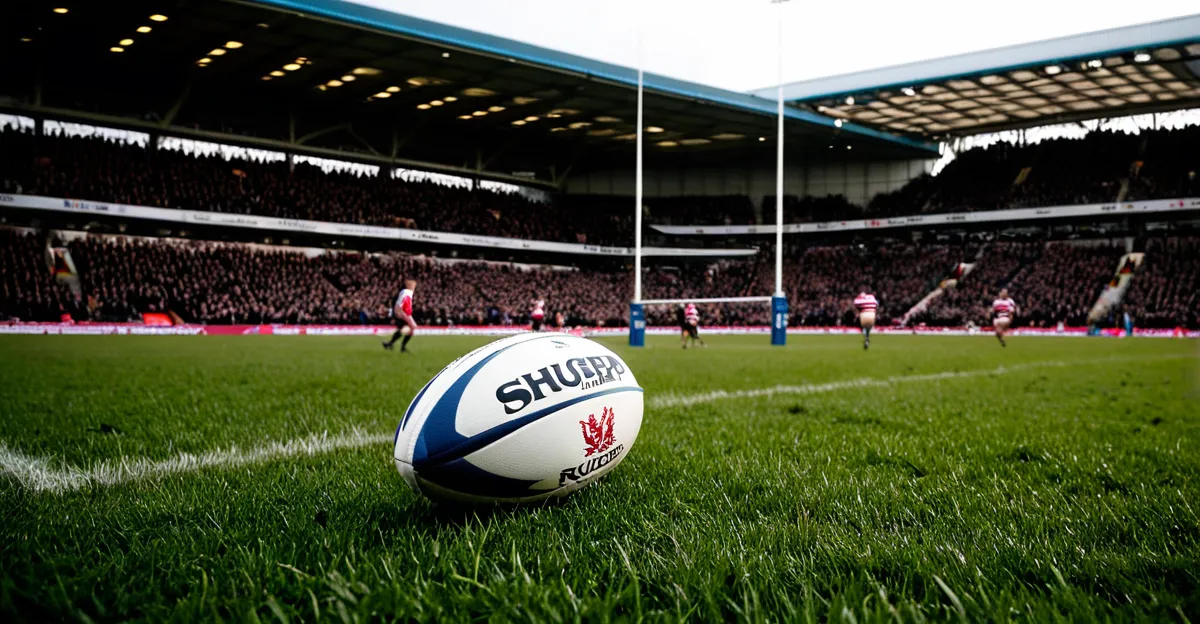Rugby’s Historical Roots and Early Development in the UK
The history of rugby in the UK traces back to 19th-century British schools, where the sport evolved from various forms of football. The pivotal moment came at Rugby School, where a unique style of handling the ball was embraced, giving birth to the distinct game known as rugby. This crystallized as the rugby origins entered formal codification, enabling standardized play.
Early rugby clubs emerged rapidly, especially across England and Scotland, reflecting growing enthusiasm. Clubs like Blackheath FC and Edinburgh Academicals played crucial roles in organizing competitions and spreading the game. These early rugby clubs were instrumental in transforming informal school matches into structured contests, contributing to rugby’s expansion beyond educational institutions.
Also read : How is the UK sports industry addressing climate change?
Several historical milestones shaped rugby’s initial popularity. The founding of the Rugby Football Union in 1871 marked a formal governing structure, while international fixtures between England and Scotland helped cement national pride through sport. The growth of club competitions and inter-school matches built a strong social fabric around rugby, ensuring it became an entrenched feature of British culture. These foundations set the stage for rugby’s enduring prominence in the UK sporting landscape.
Cultural Importance and Impact on National Identity
Rugby holds deep cultural significance across the UK, acting as a powerful expression of regional and national pride. In England, Wales, and Scotland, rugby is more than a sport; it’s a tradition interwoven with local identity. For instance, Wales views rugby as a national symbol, where matches evoke intense communal solidarity and pride. This sense of belonging highlights rugby’s role in shaping British identity.
Additional reading : What are the key challenges facing UK sports in the digital age?
The cultural significance of rugby extends to rituals and customs embedded in communities. From pre-match chants to traditional songs, these practices strengthen social bonds. Rugby events often double as cultural gatherings, where local stories and histories are celebrated, reinforcing a shared heritage.
How does rugby influence British identity? Rugby unifies distinct regions while preserving their uniqueness, making it a symbol of both diversity and unity within the UK. The sport’s traditions nurture national pride, bridging social divides and enhancing collective identity. In this way, rugby is pivotal not just athletically but also socially, reflecting and reinforcing the cultural fabric of Britain.
Integration of Rugby in Education and Community Life
Rugby in UK schools serves as a cornerstone for developing athletic skills and fostering teamwork. From primary schools to universities, rugby is embedded within physical education curricula, ensuring young players are introduced to the game early. These educational settings are crucial for nurturing both talent and passion for the sport.
Community rugby plays a vital role in uniting neighborhoods and encouraging social interaction. Local clubs act as social hubs where families and friends gather, strengthening community ties. These clubs often collaborate with schools to promote rugby among youth, increasing participation rates.
Youth development rugby programs emphasize skill-building and discipline, providing structured pathways for aspiring players. Initiatives focus not only on competitive performance but also on holistic growth, including leadership and resilience. By supporting youth engagement, these programmes sustain rugby’s future while reinforcing its inclusive nature.
Together, rugby in UK schools, grassroots community rugby, and youth development schemes create a robust network that balances sport, education, and social cohesion. This integration ensures rugby remains accessible and relevant, fostering lifelong connections both on and off the pitch.
Media Coverage and Commercial Growth
Rugby media UK plays a crucial role in amplifying the sport’s reach. Extensive rugby broadcasting on TV and radio brings live matches and in-depth analysis to fans nationwide, making rugby more accessible and engaging. For example, major networks regularly cover Premiership games and international fixtures, increasing visibility for players and clubs alike. The steady rise of digital platforms and social media has further enhanced fan engagement by offering highlights, interviews, and interactive content anytime.
Rugby sponsorship UK has significantly accelerated commercial growth. Leading brands invest in teams and events, offering financial support that elevates league quality and player development. Sponsorship helps fund grassroots initiatives, ensuring the sport’s sustainability. Moreover, league promotion benefits from partnerships with prominent sponsors, expanding marketing campaigns and merchandising.
This synergy of rugby media UK and sponsorship creates a reinforcing cycle: improved broadcasts attract sponsors, which in turn finance better coverage and sport development. Consequently, rugby’s media presence and commercial investments are central to its sustained growth and popularity across the UK.






